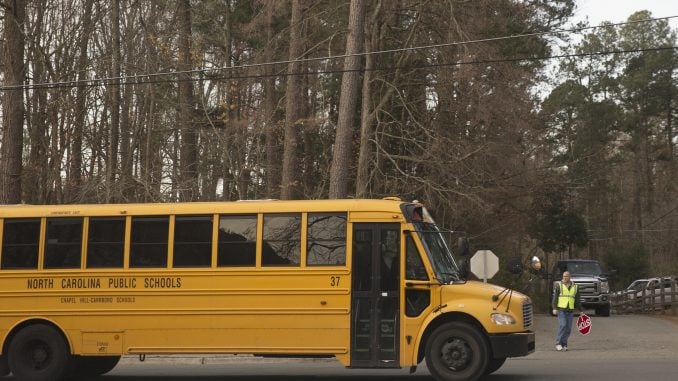
When you think of a school, strip malls and corporate office buildings aren’t the first images that come to mind. Yet for many public charter schools in North Carolina, that’s the only choice for facilities they are left with. Believe it or not, the majority of charter schools are renting or leasing space from a non-profit or commercial entity.
Taxpayers own public school buildings, and these buildings should be available to all public school students, but they’re not. Finding and financing adequate school buildings is one of the biggest challenges to opening charter schools, and keeping them open.
Charter schools don’t have an inventory of buildings to choose from the way school districts do. In addition to having access to buildings, school districts can also count on a variety of options for financing the renovation or construction of school buildings. These include state funds, capital improvement bonds, and local mill levy taxes; all options that charter schools do not have.
Without equal facilities funding from the state, nearly one in five charter schools delay their opening date by a year or more due to facilities-related issues. And until charter schools have equal facilities funding, they will continue to face this challenge. Case in point: Monroe Charter Academy.
Monroe received their charter in June 2017 and started the search for the school’s location to open in the fall of 2018. In quick succession, school administrators cycled through a myriad of different locations including churches, private schools, tracts of land, and portable classrooms to open the school, with each falling through because of funding, leasing, or other contract conflicts. By April of 2018, the school knew they would not be able to open in time. With no classrooms for students, they were forced to ask the State Board of Education for a one-year extension. Instead of serving students, the school became a statistic.
Because they did not open, students who had planned to start school at Monroe in the fall had to find other options. And the principal that was hired moved from New York only to find out she was no longer going to have a job. Fortunately, the school’s board has finally found an appropriate facility and plans to open in fall of 2019.
We cannot allow this to keep happening. Charter schools desperately need access to school facilities that meet the needs of their students. That’s why one of our main legislative priorities at the North Carolina Association for Public Charter Schools is to ensure charter schools have parity in funding opportunities. Adding a simple zero or low interest loan to the facilities’ funding toolbox could be the difference between a new public charter school getting off the ground or not.
We know that parent demand for charter schools is increasing, but facilities constraints are restricting supply. All students—including students who attend public charter schools—deserve access to welcoming and safe learning environments that are conducive to growth and success. But in fact, nearly half of charter schools are located in buildings that weren’t originally intended to be a school, which means they don’t have gyms, cafeterias, auditoriums, and playgrounds.
Improved mechanisms for charter school facilities access can create the circumstances for student equity by providing educational entrepreneurs the resources needed to open schools in their communities. Legislators must take the opportunity to pursue facilities funding in their legislative priorities. Students deserve the best, high quality education we can give them, in a classroom that fosters imagination, exploration, and community.
Rhonda Dillingham is the executive director of the NC Association for Public Charter Schools, which seeks to advance quality educational opportunities for all North Carolina children by supporting and expanding successful charter schools.



